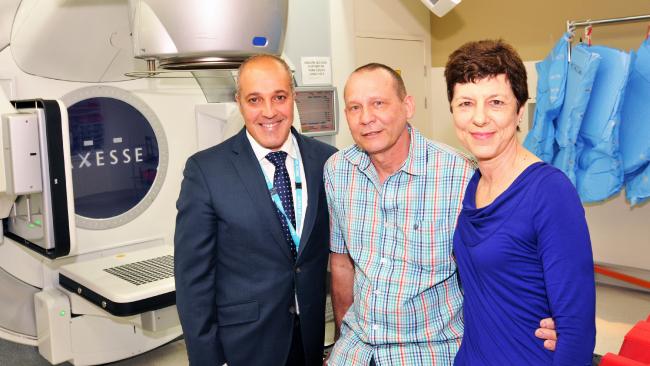
GAME-changing Australian research may revolutionise the treatment of breast, throat and prostate cancer.
A conference of top cancer radiology specialists being held in Brisbane this week has heard of remarkable clinical trials for new treatments that are saving lives.
A breast cancer trial run by the trans-Tasman Radiation Oncology Group (TROG) improved survival rates by 5 per cent, boosting them to 82 per cent. This was achieved by administering radiotherapy to women’s underarm lymph nodes rather than just the breast.
The treatment was done after surgery for breast cancer that had spread to the lymph nodes.
The overall cancer survival rate is just 70 per cent and TROG president Sandro Porceddu said clinical trials were essential to ending the pain the disease caused sufferers and, ultimately, achieving a cancer-free society.
Brisbane is set to become the first city outside of Europe to take on advanced throat cancer patients for a TROG clinical trial that will reduce the time sufferers must spend in hospital.
Under the trial, to be run first through the Princess Alexandra hospital, patients take a tablet at home that advances the effects of radiation.
“In participating in this trial it really puts Queensland and Australia at the forefront of head and neck cancer research,” Associate Professor Porceddu said.
Findings from a prostate cancer trial were also presented at the conference.
These men were more likely to survive than men who had treatment only once the symptoms began, the study found.
“TROG trials are game changers and findings from them are immediately transferred into clinical practice,” Prof Porceddu said.
Breast cancer survivor Lorraine Woods, 70, applauded clinical trials.
“I think clinical trials help women make the most informed choices … it might be a steep learning curve (having cancer) but they can have the best information about it,’’ she said.
Ms Woods has been cancer-free for 16 years and works as a Breast Cancer Network Australia consumer advocate.
She has seen first-hand the treatment advances that clinical trials bring.
“Women diagnosed now, they have many more options and there is a great advancement in treatment from when I was diagnosed,’’ she said.